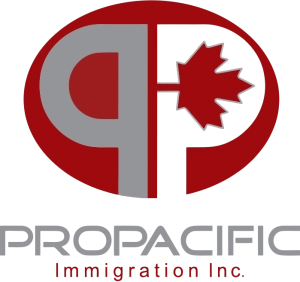The International Mobility Program (IMP)
The International Mobility Program includes all Labour Market Impact Assessment (LMIA) exempt work permit categories. This includes employees entering Canada on work permits pursuant to Free Trade Agreements and Intra-Company Transfers. Employers of foreign nationals working in Canada through the IMP must still comply with all requirements of the program and are subject to the same compliance and enforcement measures as those using the Temporary Foreign Worker Program.
Temporary Foreign Worker
The Temporary Foreign Worker Program is a work permit category of last resort for employers who are unable to recruit qualified Canadians and Permanent Residents. The program uses a Labour Market Impact Assessment to make a determination about work permit approval and includes very detailed advertising and recruiting requirements as well as other compliance obligations.
Spousal Open Work Permit
Spouses and common-law partners of foreign nationals authorized to work in Canada in certain managerial, executive or professional highly skilled occupations may be eligible for spousal work permits. These work permit applications may be made alongside the principal application for a work permit.
In some cases, your spouse or common-law partner may be able to apply for an open work permit—allowing him or her to accept any job with any employer. In others, your spouse or common-law partner must apply for a work permit for a specific employer. The employer may have to get a Labour Market Impact Assessment (LMIA). An LMIA allows an employer to hire someone for a specific job. Contact us to find out if your spouse or common-law partner’s employer needs an LMIA to hire them.
Post Graduation Work Permit
Graduates of Canadian post-secondary institutions are eligible for a one-time post-graduation work permit after completing their studies. These open work permits grant work authorization to international students, allowing them to gain valuable Canadian work experience that may be used as part of a later application for Permanent Residency.
A work permit under the Post-Graduation Work Permit Program (PGWPP) may be issued for the length of the study program, up to a maximum of three years.
Global Skills Strategy
The Global Skills Strategy came into effect on June 12, 2017 in what is promised to be faster access to highly skilled foreign talent to help Canadian companies grow and prosper. The ambitious plan is aimed at reducing barriers and regulatory provisions, helping attract foreign investment, and speeding up the process to bring in foreign skilled talent.
The two main pathways for this brain gain will be facilitating the faster and timely entry of skilled foreign workers for short-term Canadian positions and the Global Talent Stream for Canadian firms to scale-up their highly-skilled work force with global talent.
SHORT-DURATION WORK PERMIT EXEMPTIONS:
Skilled workers coming to Canada for less than 30 days are now exempt from the requirement of first obtaining a work permit. Now, if a worker is coming to perform work for 30 days or less and their occupation is classified as “highly skilled” or “managerial”, they are eligible to work without a work permit. Researchers are now eligible for a work permit exemption for 120 days if they are coming to work at a publicly funded, degree-granting institution at the college or university level.
GLOBAL TALENT STREAM:
The two streams of the program are:
Category A – for innovative, high-growth, high-potential firms, that have been referred to the Global Talent Stream by a Designated Partner, who need to hire unique and specialized talent. Unique and specialized talent has been defined as:
- Advanced knowledge of the industry;
- Advanced degree in an area of specialization of interest to the employer; AND/OR
- Minimum of five years of experience in the field of specialized experience; AND
- A highly paid position with a salary of usually $80,000 or more
Category B – for Canadian businesses that are seeking to hire highly-skilled foreign workers to fill the following occupations found on the Global Talent Occupations List:
- NOC 0211 – Engineering managers
- NOC 0212 – Architecture and science managers
- NOC 0213 – Computer and information systems managers;
- NOC 2147 – computer engineers (except software engineers and designers);
- Subset of 2161 – Mathematicians and statisticians (excluding actuaries)
- NOC 2171 – Information systems analysts and consultants;
- NOC 2172 – Database analysts and data administrators;
- NOC 2173 – Software engineers and designers;
- NOC 2174 – Computer programmers and interactive media developers;
- NOC 2175 – Web designers and developers;
- NOC 2283 – Information systems testing technicians who earn a wage of at least $37.50;
- Sub-set of 5241 Digital Media and Design – position requires a minimum of five years of industry experience
- Sub-set of 5131 Producer, technical, creative and artistic director and project manager – visual effects and video game.
Both Category A and Category B firms are required to work with the Department of Employment and Social Development to develop a Labour Market Benefits Plan that demonstrates their commitment to activities that will track overall job creation, skills and training investments, and provides a benefit to the Canadian economy through the employment of the highly-skilled global talent.
The Government of Canada believes that investment follows talent and as part of the innovation agenda, Canada is opening the door to the next brain gain of highly skilled, specialized, in-demand foreign workers who will help Canadian companies scale up and grow their businesses.



